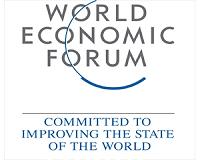| . |  |
. |
College Park, Md. (UPI) Feb 2, 2009 U.S. President Barack Obama's budget and deficit projections don't reveal the sick state of U.S. finances, casting serious doubt on the safety of U.S. bonds. Obama plans significant initiatives in healthcare, environment, education and jobs creation. Yet, the private sector, which must be taxed to finance government, is likely to grow slowly, resulting in too much federal borrowing. To create jobs, businesses need customers and capital -- without those they can't sell what new employees make or buy equipment workers need. Demand for U.S.-made goods and services remains weak because Americans spend too many dollars on imported oil and other products that do not return to purchase U.S. exports. The gaping trade deficit contributed mightily to the Great Recession and the Obama administration offers few plans to turn that around. After receiving more than $2 trillion in federal aid, banks are still not lending enough to businesses. Most aid went to about 10 big Wall Street banks, which refuse to perform their traditional function of financing loans through the 8,000 regional banks. J.P. Morgan, Goldman Sachs and others would rather trade currency futures, energy contracts and other derivatives than engage in the boring business of lending to smaller banks and businesses. Financial sorcery generated $150 billion in bonuses last year, honest banking is for the stiffs and little Treasury Secretary Timothy Geithner proposes fixes that dysfunction. Reflecting slack demand and tight credit, economists are predicting substandard growth over the next several years, something in the range of about 2.6 percent and well below what could be expected from productivity and potential labor force growth. Yet, Obama's budget assumes the U.S. economy will grow 4 percent a year from 2011 through 2014 to bring his $1.6 trillion deficit down to $706 billion. The tax base will grow more slowly than Obama assumes and plans to hike taxes on high-income Americans, while exempting the middle class, must pass the Senate. Scott Brown's U.S. Senate race landslide in Massachusetts will curb such populism. Obama's freeze on discretionary programs that do not enjoy his pet eye will yield a paltry $25 billion a year and his special bank tax only $10 billion. For years to come, federal finances will likely look a lot like Obama's 2010 projection -- the deficit at more than 50 percent of revenues and the Treasury borrowing $100 billion every month. Moody's would be hard pressed to give any government with budget projections like those an investment grade rating, but the United States is different. The Federal Reserve can print dollars if no one wants to buy new Treasuries, because the dollar is the global currency. But U.S. bonds are still risky. Internationally, interest-bearing Treasuries function much like currency. Whether as Treasuries or currency, too many dollars will instigate inflation as the global economy recovers. Just the fear of inflation causes investors to demand higher interest rates. As Washington spends and borrows, the Treasury will be compelled to pay higher rates on new 10- and 20-year bonds, making securities issued in 2010 and earlier worth less in the resale market. That interest rate risk makes U.S. Treasury securities lousy investments. Washington's monopoly on printing dollars makes difficult assigning U.S. Treasuries a conventional rating between AAA and D. Those bonds can't default but investors' capital remains at risk. Perhaps a special grade: "F" -- flee now before you get stuck. (Peter Morici is a professor at the Smith School of Business, University of Maryland, and former chief economist at the U.S. International Trade Commission.) (United Press International's "Outside View" commentaries are written by outside contributors who specialize in a variety of important issues. The views expressed do not necessarily reflect those of United Press International. In the interests of creating an open forum, original submissions are invited.)
Share This Article With Planet Earth
Related Links The Economy
 Davos ends with recovery warning after banking bust-up
Davos ends with recovery warning after banking bust-upDavos, Switzerland (AFP) Jan 30, 2010 The world economy is recovering but remains fragile and dogged by huge deficits, top officials said Saturday at the end of a Davos summit clouded by divisions over banking reform. Asia is leading the resurgence after the worst crisis for decades with China eyeing double-digit growth, but the United States and Europe remain dogged by unemployment and the eurozone is grappling with a crisis ov ... read more |
|
| The content herein, unless otherwise known to be public domain, are Copyright 1995-2010 - SpaceDaily. AFP and UPI Wire Stories are copyright Agence France-Presse and United Press International. ESA Portal Reports are copyright European Space Agency. All NASA sourced material is public domain. Additional copyrights may apply in whole or part to other bona fide parties. Advertising does not imply endorsement,agreement or approval of any opinions, statements or information provided by SpaceDaily on any Web page published or hosted by SpaceDaily. Privacy Statement |